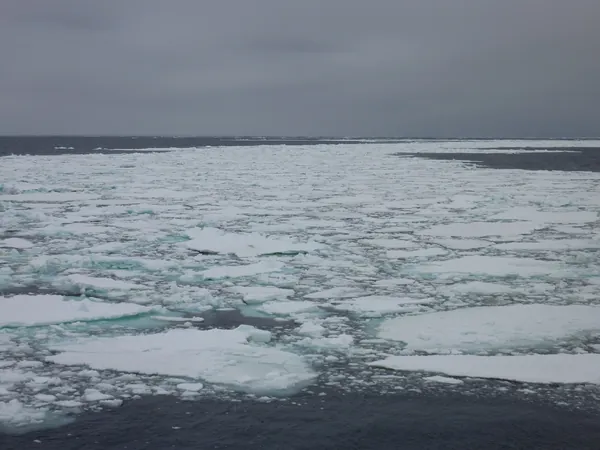
Alarming New Study Reveals Antarctica's Ice Is Melting Faster Than Ever!
2024-12-10
Author: Benjamin
Summary of Findings
A groundbreaking new study led by geoscientists from the University of Leicester and the University of Southampton has unveiled chilling evidence of rapid melting in the Antarctic ice sheet, drawn from climate records dating back over 20 million years. Published in the esteemed journal Nature Communications, this study offers a stark warning about the instability of the Antarctic ice due to Earth's fluctuating orbit around the sun.
Geological History Insights
The research indicates that the Antarctic ice sheet has undergone significant changes in size throughout its geological history, akin to a heartbeat. However, these variations are troubling because they manifest different 'rhythms' across various oceanic regions, leading scientists to question the conventional understanding of how ice ages have historically influenced our planet's climate. The anticipated uniformity of these ice age imprints is being defied, indicating a surprising complexity in Earth's past climate interactions.
Effect of Earth's Orbit
Central to these 'heartbeat' rhythms is the eccentricity of Earth's orbit, which alters the distance to the sun and subsequently influences temperatures on Earth. When the orbit is more elliptical, the ice sheet tends to melt more dramatically due to increased temperatures during close encounters with the sun. Conversely, when Earth's orbit is more circular, the ice remains more stable.
Research Methodology
This newly published data focuses on the period from 28 to 20 million years ago, when temperatures were significantly warmer than they are today, with only the Antarctic ice sheets present. By examining geological cores collected during an expedition of the Integrated Ocean Drilling Program (IODP), researchers have created a new benchmark for climate records. This effort is essential for enhancing the accuracy of global climate models, allowing scientists to better predict the ramifications of current greenhouse gas emissions on future ice melt.
Expert Warnings
Lead author Dr. Tim van Peer emphasizes, 'Our research shows that the Antarctic ice sheet is far more unstable than previously believed. It reveals just how sensitive this early Antarctic ice was to shifts in Earth's orbit and axial tilt. Historical climate changes led to the swift termination of early Antarctic ice ages—although 'rapidly' in geological terms, it is much slower than the alarming rates we anticipate today due to climate change.'
Call to Action
Dr. van Peer further warns, 'We cannot afford to view the modern Antarctic ice sheet as stable. Prolonged emissions could catalyze a significant melting event, leading to disastrous consequences for sea levels worldwide. Immediate action to curb emissions is imperative to prevent crossing critical tipping points within the Antarctic ice system.'
Microorganism Analysis
The research team meticulously analyzed microorganisms extracted from the geological cores in the northwest Atlantic Ocean, which preserve the ocean's chemical history through oxygen isotopes. By studying the ratio of these isotopes, scientists can deduce periods of ice growth or shrinkage, thus establishing a timeline intrinsic to Earth's climatic evolution.
Conclusion
As warnings about climate change become increasingly pressing, this study serves as an urgent call to action, highlighting the fragile state of our planet's ice sheets and the dire need for concerted global efforts to mitigate climate change. Failure to act could unleash catastrophic consequences for future generations.









 Brasil (PT)
Brasil (PT)
 Canada (EN)
Canada (EN)
 Chile (ES)
Chile (ES)
 España (ES)
España (ES)
 France (FR)
France (FR)
 Hong Kong (EN)
Hong Kong (EN)
 Italia (IT)
Italia (IT)
 日本 (JA)
日本 (JA)
 Magyarország (HU)
Magyarország (HU)
 Norge (NO)
Norge (NO)
 Polska (PL)
Polska (PL)
 Schweiz (DE)
Schweiz (DE)
 Singapore (EN)
Singapore (EN)
 Sverige (SV)
Sverige (SV)
 Suomi (FI)
Suomi (FI)
 Türkiye (TR)
Türkiye (TR)